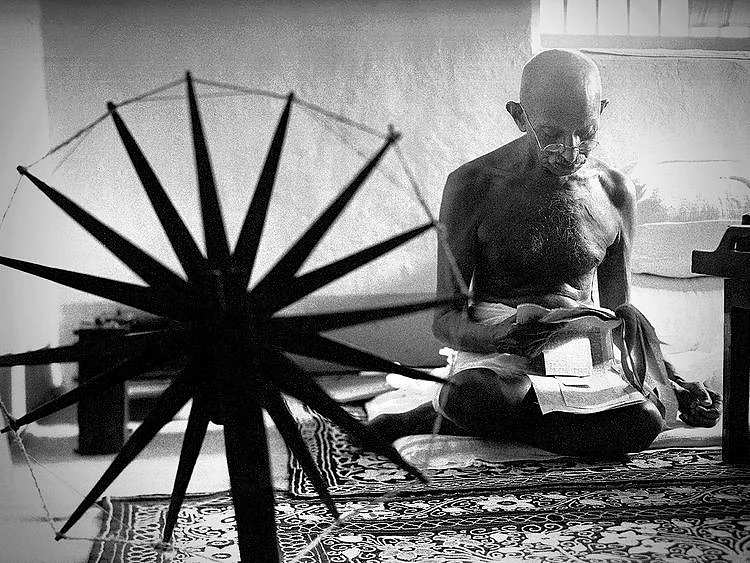Beyond Independence: Navigating India’s complex identity
Nehru’s ‘Tryst with Destiny’, Gandhi’s ‘Tearful Ambition’ shapes India’s continuous story

The word India gives me goosebumps — my beloved, beautiful, gigantic and crazily complicated country. Yesterday India celebrated its 77th Independence Day.
Aug. 15 is the day Jawaharlal Nehru’s our first Prime Minister said those evocative words — “Long years ago, we made a tryst with destiny; and now the time comes when we shall redeem our pledge, not wholly or in full measure, but very substantially. At the stroke of the midnight hour, when the world sleeps, India will awake to life and freedom.”
Nehru’s ‘Tryst with Destiny’ speech also had a reference to the ‘greatest man of our generation’ and his ‘ambition to wipe every tear from every eye’. That is the scale of Mahatma Gandhi’s dream for India.
When India set out on its independence journey sombre “experts” wrote us off. We were too poor, too divided and simply too large. Yet here we are — having defied every doomsayer.
My identity as an Indian from Uttar Pradesh’s Lucknow defines me and my country fascinates me. Perhaps the reason why I studied history in university and took up journalism to try and make sense of my country.
India is a daunting, formidable challenge. And, yet every Prime Minister from Nehru downwards has had a sincere try at fixing our myriad problems.
Lack of empathy
The biggest problems we face are divisiveness and inequality. Also perhaps as the economy has grown on steroids, there has been a lack of empathy for our fellow citizens. The feudal mindset persists in the modern day Maharajas and Maharanis — some of those who live in the twinkling multistorey towers of Gurugram (also called Gurgaon), our bold face address to the world.
After the recent riots in Gurugram, the new economic royalty realised the importance of those who labour 24/7 to keep their privileged lifestyle going as garbage piled up and daily maids who made life smooth left Gurugoan in fear for their lives.
These individuals, a consistent group with some leveraging the power of majoritarian sentiment, are the ones perpetuating the WhatsApp university's cycle of spreading rumors and fake reports.
Their daily forwards, often riddled with toxicity, serve to label fellow citizens as potential fifth columnists. The same people went on television and appealed to the Haryana government to provide security to the people who kept Gurugram running.
I watched — incredulous and properly incensed — at the insensitivity on display, wondering when it would dawn on these people that poverty shouldn’t dehumanise you to the extent that you weren’t quite human to those who availed of the services you provided.
Sure being rich is glorious specially in a country where poverty ensures that you don’t have to lift a finger to ever do any work for yourself. Your every need is catered too by people who slave to eke out a bare existence.
Let every Indian excel
Slap on centuries of inequality and a caste system that makes equality feel like discrimination and you have the Indian problem in a nutshell. Let’s be honest, the distaste most Indians — high on the caste hierarchy — feel about working with their hands is inherently an Indian problem.
Engineers who study at the world-beating Indian Institute of Technology (IIT) line up to take the exam which will make them administrators in the Indian Administrative Service (IAS) — the successor to the British civil service — the ICS which governed India.
Our prejudice and suspicion about people who follow a different religion exacerbates when politicians seek to give the overwhelming 85 per cent majority a persecution complex.
The only thing that dissipates most of this prejudice is education which needs to be an urgent right of every Indian child. A warm nutritious free midday meal in a free, good quality school will transform generation next in India. Many children in UP and Bihar, Orissa, Gujarat Assam and Jharkhand grow up stunted in development because of an inadequate diet lacking nutrition.
Education and nutrition don’t have the big ticket political appeal that will win you elections but, are genuinely transformative ideas for India. As our economy becomes a world beater, let’s enshrine a right to a free warm meal and free world class school education for every Indian.
Let India be independent from hungry children. Let every Indian excel.
Network Links
GN StoreDownload our app
© Al Nisr Publishing LLC 2026. All rights reserved.